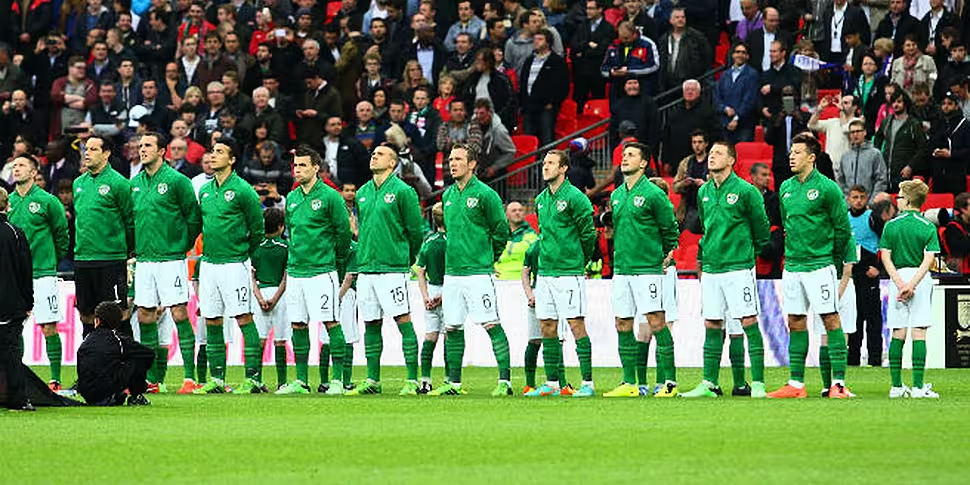The build-up to Wednesday’s match with England naturally stirred up memories of that terrible day in 1995 when some of the corrosive elements of their support decided to turn the old Landsdowne Road into a warzone.
Similarly, Spain, who we play on June 11 in New York, throws up some bad memories for Ireland, in a different sense. There is the tight penalty shoot-out loss to the Iberians in 2002, followed by the 4 – 0 mauling at last year’s European Championships to attempt to erase from memory.
It is interesting to be squeezed on one side by a footballing nation that has lost its identity and has become impotent and unwilling to fix the problem thanks to the allure of money and arrogance.
On the other side, sits a footballing nation that has found a style of play that has not only been successful but conforms to its cultural mores.
The continued effectiveness of tiki taka can be put under scrutiny after the events of recent months but one thing is for sure. It feels distinctly Spanish, suiting the characteristics of the pint-sized midfield schemers that they seem to produce in abundance.
A strict adherence to short passing could be seen as short-sighted and restrictive but it’s a damn sight better than anything the English game has produced over the past 50 years.
A footballing philosophy need not be one that lasts forever and need not be based around a specific formation. Germany’s style of play from the late 70s to the early 2000s focused on efficiency, physique and directness. It worked for some time but by the late 90s it had to become obsolete.
Unlike the English, the Germans immediately sought to remedy the issue and from top to bottom they restructured their national game and are now reaping the rewards at club and international level with a new philosophy based on attacking dynamism, technique and some of the more useful traits that they used to possess.
Philosophy
Meanwhile The Netherlands may have won just one European Championship to their name but the fact that a country of less than 20 million people has been able to punch above its weight with impressive regularity has much to do with the fact that players at all levels of the footballing pyramid are imbued with a Total Football philosophy which makes it easier for them to slot into a team seamlessly.
A key element of Total Football was that it also drew from non-sporting sources, reflecting Dutch society’s liberal attitude of the time, whereas the less appealing side that reached the 2010 World Cup seemed to mirror the nation’s political and social slide to the right.
Like our English neighbours, Ireland also lacks a coherent philosophy. Ireland has generally played a cautious and one-dimensional game under Giovanni Trapattoni, atlhough there are a few optimistic signs. That has been the case for the past five years but in 2014 a new manager comes in, with players having to learn a new system in the short time they get to spend together on international duty.
A coherent philosophy is particularly important at international level where there is a limited pool of players and a restricted amount of time for a manager to put their stamp on things.
It has also been said before, but Trap’s philosophy does not correspond to Irish footballing culture and does not appear to come naturally to the players. But a new manager would not necessarily change that.
But for a country of our size, a cohesive style of play emanating from the national youth teams to the senior side would be beneficial. And it would be all the more welcome if it suited our natural characteristics with pressing, a high tempo and a positive style of play being three ingredients that could be reintroduced.
It is not a quick fix due to failings in the area of technical ability. But alongside some of the changes being made in terms of developing technical players via the Emerging Talent Programme, the FAI should also give some thought to a coherent philosophy and footballing culture to provide a platform with assistance from the Airtricity League if possible.
As the FAI’s former High Performance Director Wim Koevermans told me in 2011, he did not intend to turn Ireland Dutch. But the emphasis should be making the Boys in Green truly Irish.
©INPHO/Ken Sutton









